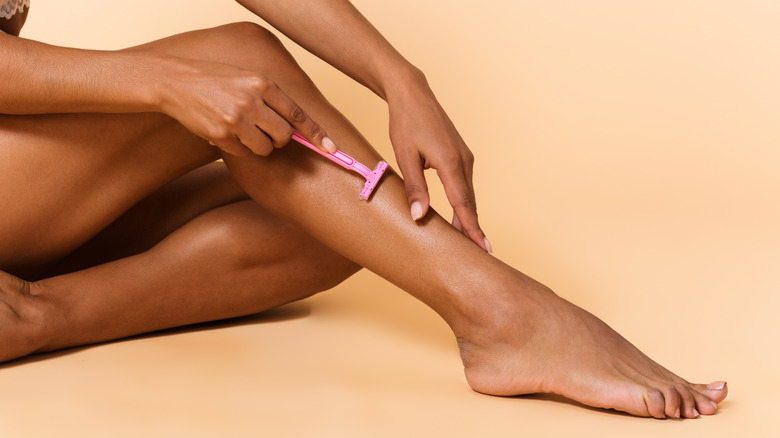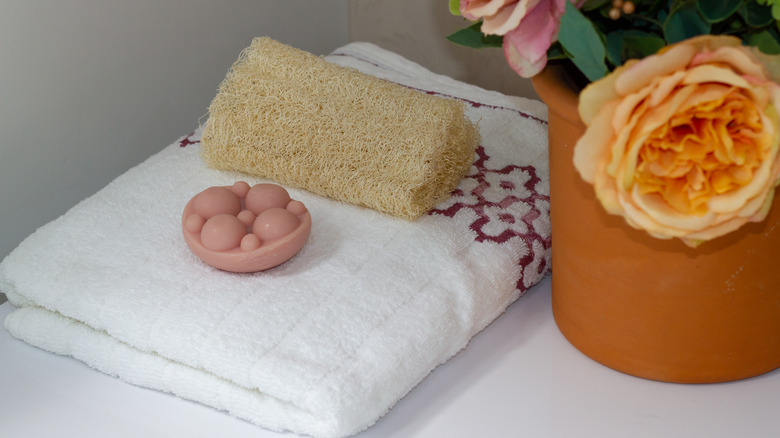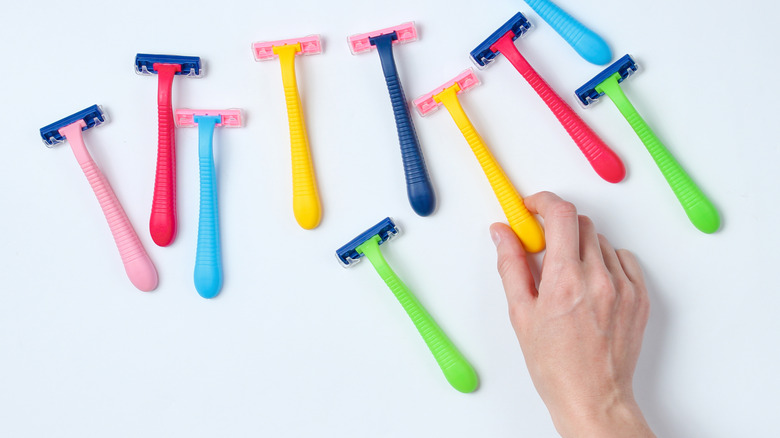Here's Why You Get Razor Burn So Bad
Despite hating the cold, most of us love fall and winter because it lets us avoid the unnecessary trauma that comes with shaving. Shaving can leave your legs feeling smooth and looking great or it could leave you with bumps and a burn that remind you of nothing but the pain associated with the task.
According to Healthline, razor burn is when your skin is left itchy with a red rash, bumps, and tenderness after shaving. It's a feeling, if you haven't, that you do not want to experience.
So how exactly do you avoid razor burn?
There are a few simple things you can do before and after shaving to avoid the pain associated with razor burn. In fact, these tips are so basic you'll be wondering why you never thought to do them in the first place.
What causes razor burn?
Razor burn can happen for a number of reasons but, one of the main reasons is not prepping your skin.
Dry shaving or shaving without lubricant (such as soap and water or a cream) can both damage and irritate skin resulting in razor burn. But it's not only a lack of shaving cream that can irritate the skin — using products that are heavily scented can also agitate your skin leaving it red and angry after a shave.
It's important to know what products work with your skin and are gentle enough for you to use.
Many experts recommend exfoliating your skin prior to shaving in order to remove dead skin and soften the hair for a cleaner and more gentle shave (via Cosmopolitan). A simple skin care routine can also help you avoid the dreaded razor burn.
Once you're done shaving, you don't want to forget to moisturize. Not moisturizing leaves the skin dry and prone to irritation especially when layered with clothing (via HuffPost), so be sure to use a lotion or oil to preserve moisture and add an extra layer of protection from razor burn and bumps. Dermatologist Dr. Jennifer Chwalek recommends "moisturizers with glycerin help to restore the barrier function of the skin."
Change your shaver often to avoid razor burn
It is important to prep your skin before shaving, but the tools you use could also be causing razor burn. Ask yourself, how often are you changing your razor?
Using an old razor can irritate skin because of the bacteria that is being spread. Make sure your razor is clean and not clogged with hair or a product. A dull blade can also cause razor burn, according to Gillette, a fresh sharp blade protects the skin and doesn't pull as roughly on body hair.
Don't forget to take note of how you shave. Healthline says that shaving in the same area too many times or shaving too quickly can cause irritation. It's important to not only shave at a decent pace in light strokes, but in the same direction of your hair. Shaving in the direction of hair growth reduces the chance of rashes and bumps.


